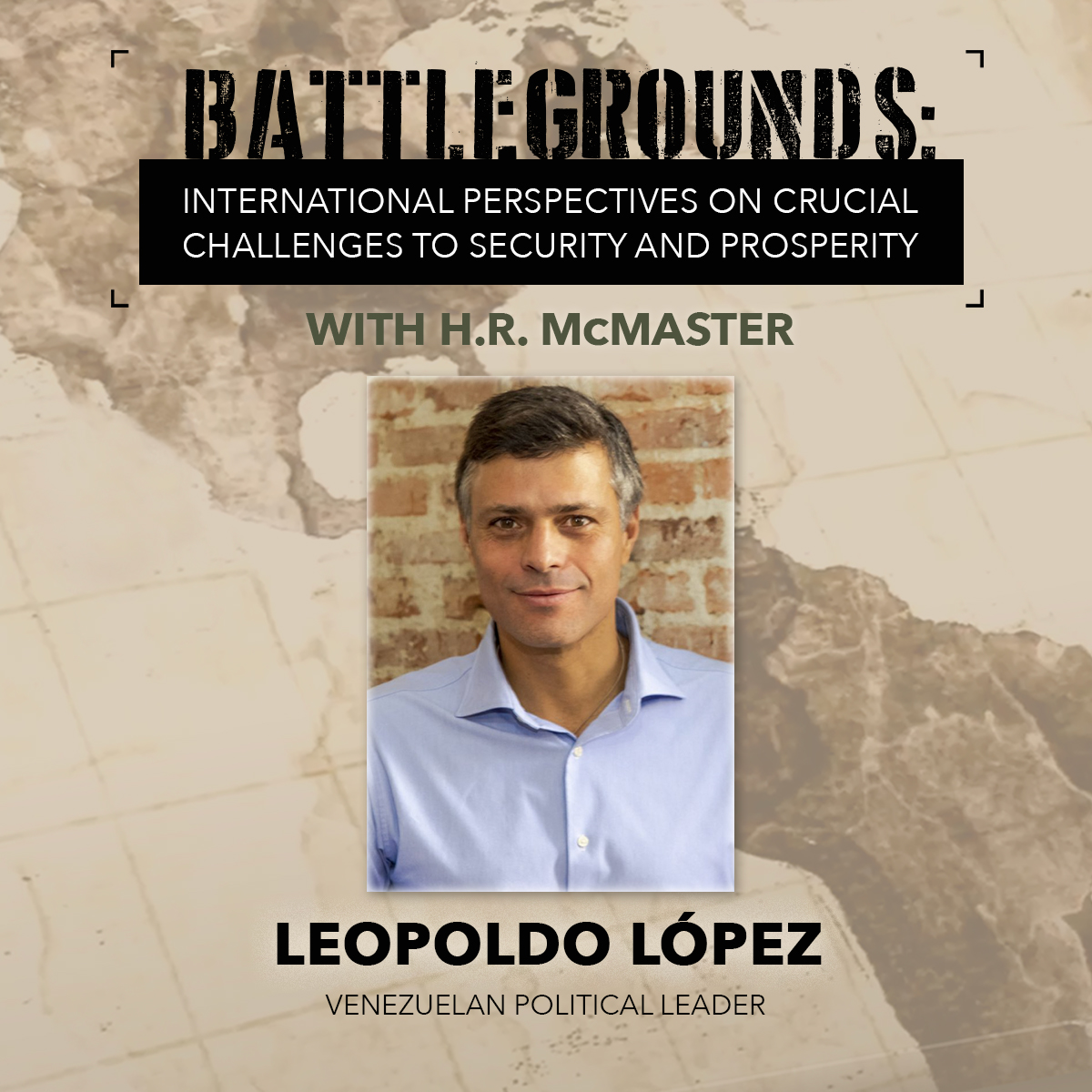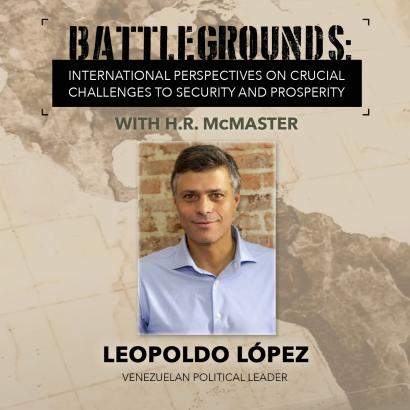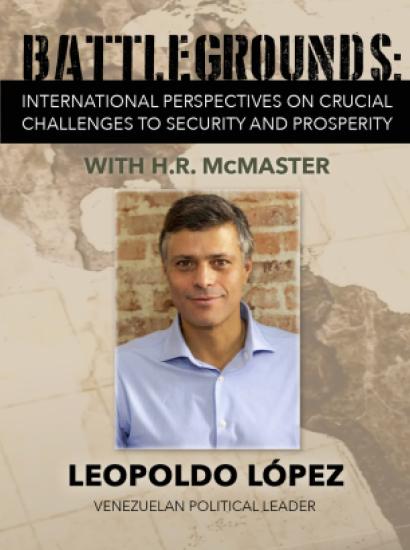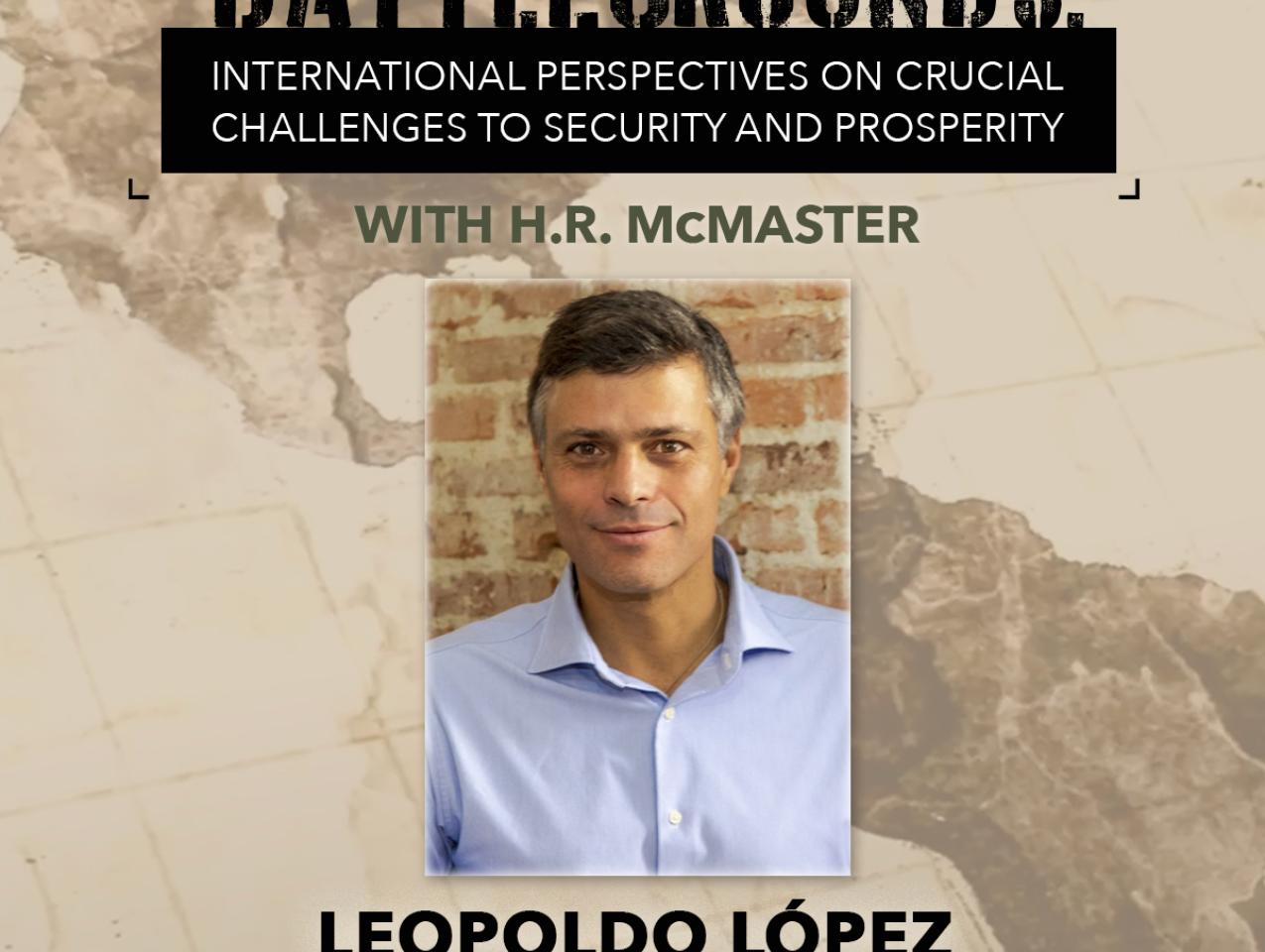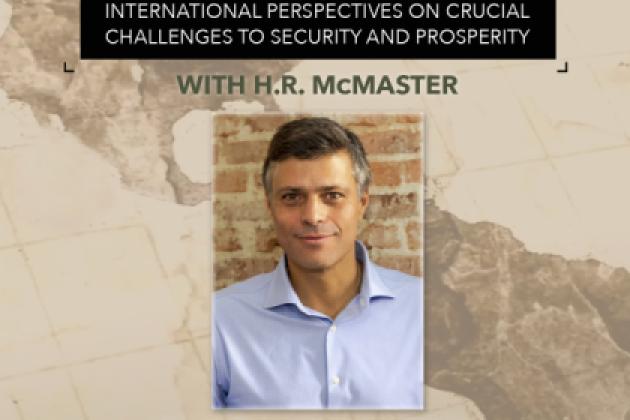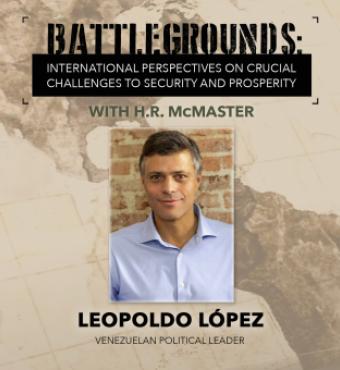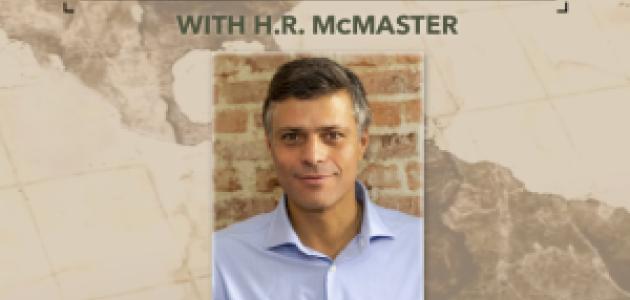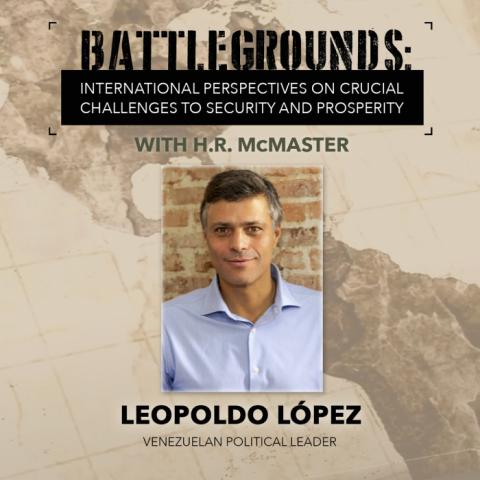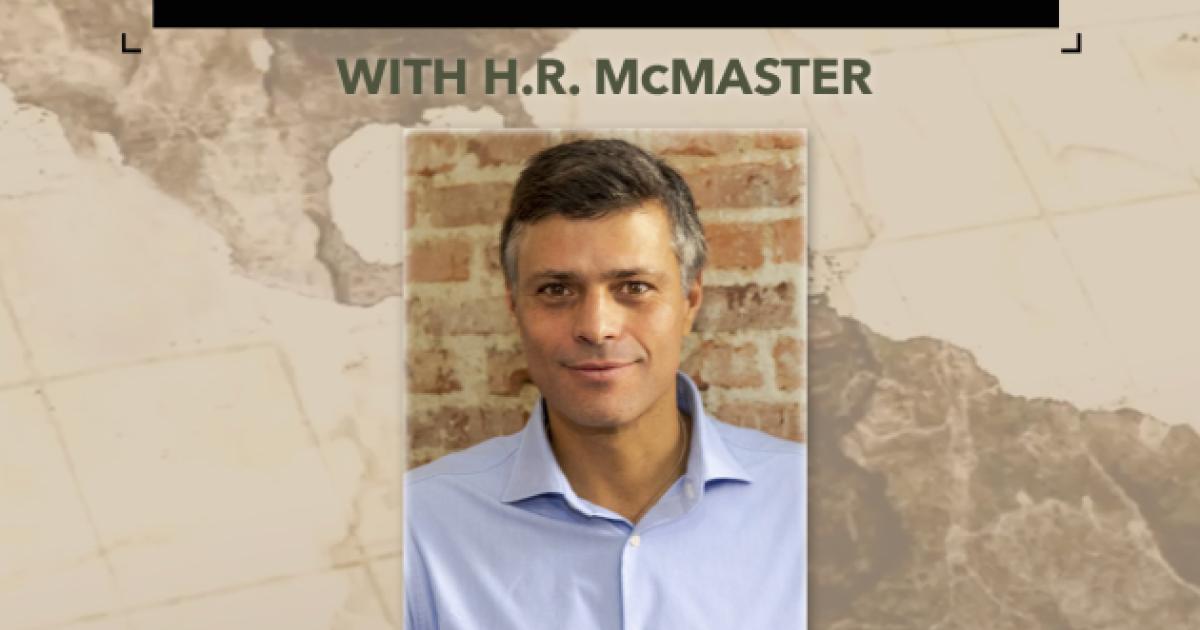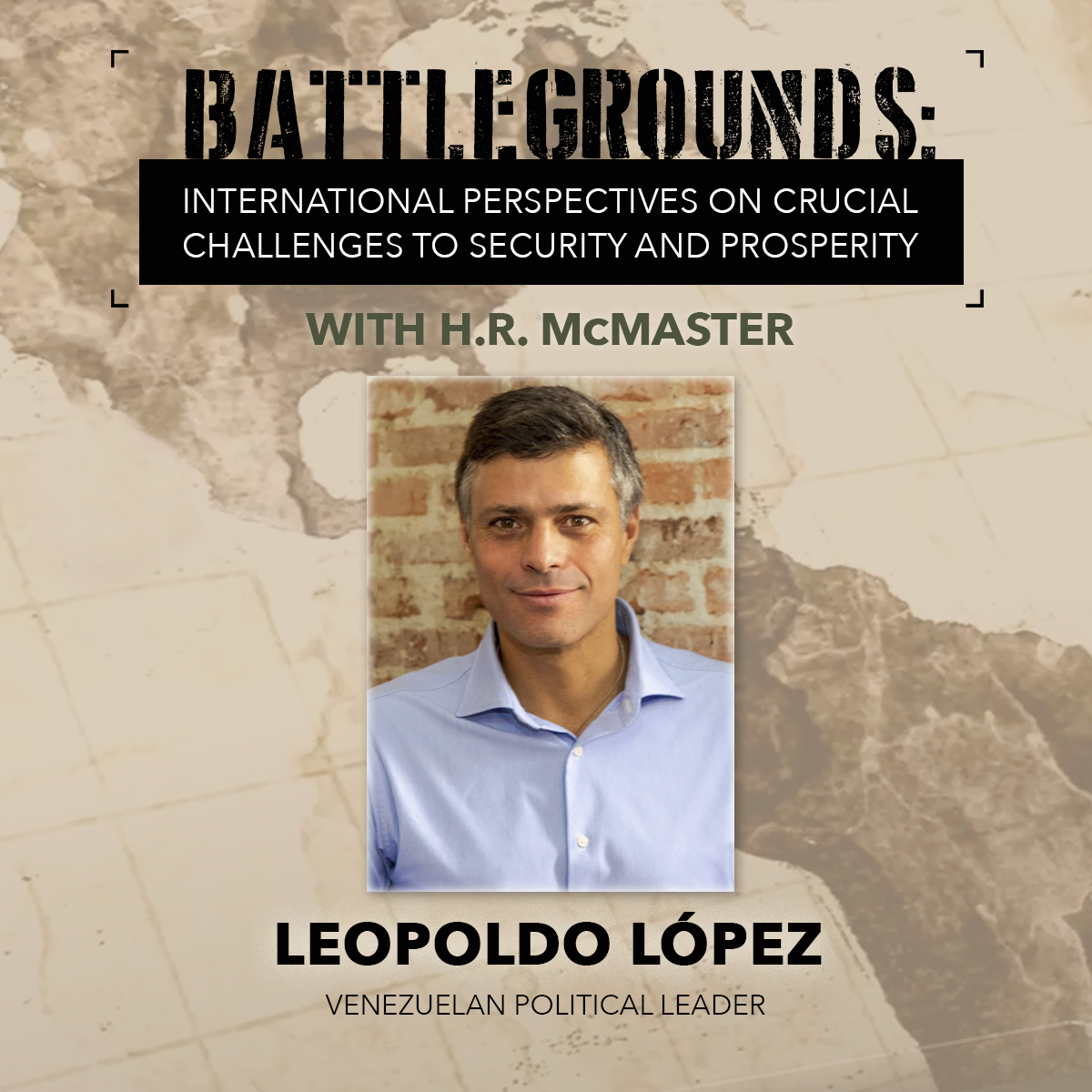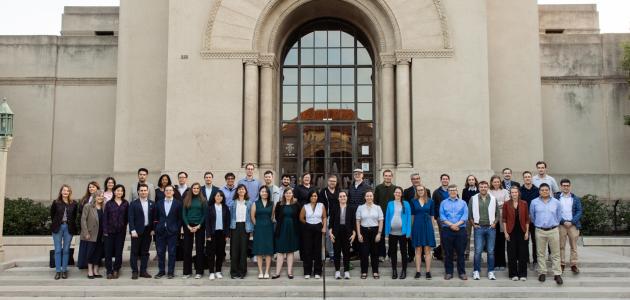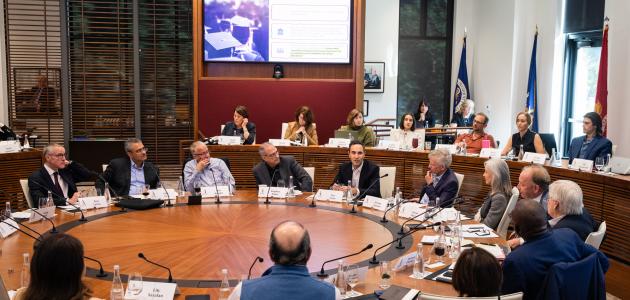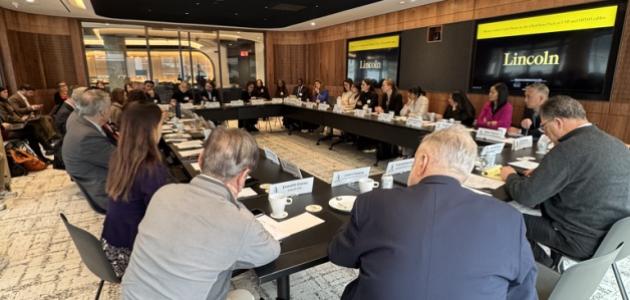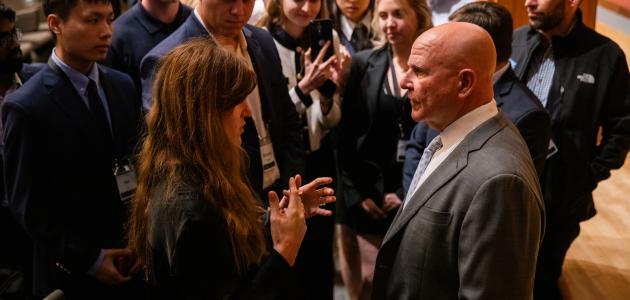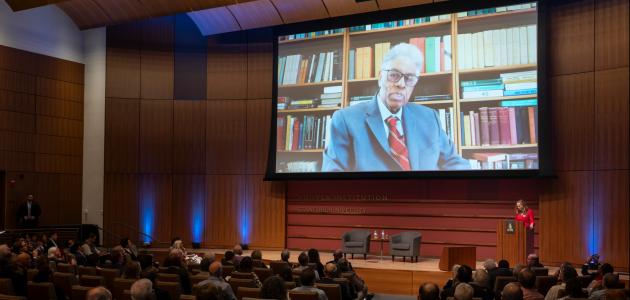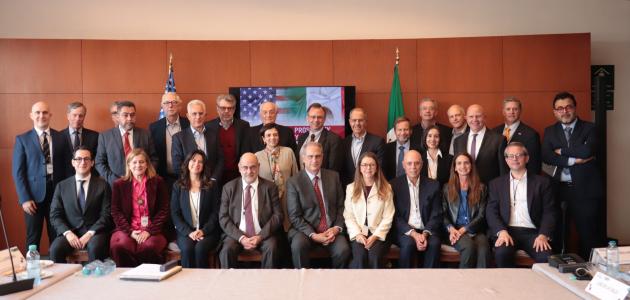Venezuela opposition leader Leopoldo López describes how his nation descended from being one of the more prosperous democracies of Latin America to a society in which its citizens are subject to a corrupt autocracy and are plagued by abject poverty, in the latest episode of Battlegrounds, a Hoover Institution broadcast hosted by Fouad and Michelle Ajami Senior Fellow H. R. McMaster.
López, mayor of Caracas’s Chacao municipality from 2000 to 2008, now lives in exile in Spain, after escaping imprisonment for demonstrating against the regime of Nicolás Maduro, who, with his now deceased predecessor Hugo Chávez, have dominated Venezuela’s politics for a combined two decades.
Over the course of that time, López explains, the nation’s rule of law has deteriorated, its wealth has been destroyed, and its population decimated. Just within the past eight years, more than six million Venezuelans have sought refuge in neighboring countries in Latin America and the Caribbean as the country’s GDP has declined by 90 percent. With Venezuela sitting atop the world’s richest oil reserves, the Maduro regime’s corrupt and incompetent administration has enriched itself and its political allies while failing to diversify the national economy.
***
López provides a brief history of how Venezuela has reached the current crisis. After a failed military coup in 1992 that resulted in López’s two-year imprisonment, Hugo Chávez was elected through the democratic process in 1999 on a reform agenda. However, immediately after taking office, Chávez adopted extra-legal measures of consolidating power. He issued a referendum that called for the formation of a new unicameral Constituent Assembly to rewrite Venezuela’s constitution. Subsequently, Chávez gerrymandered the election to seat supermajorities of his political supporters and, in defiance of the nation’s supreme court, the Chavistas supplanted the existing bicameral legislature formed under the 1961 constitution.
“That was the beginning of a process to kill democracy from within,” López recalls.
Chávez and now Maduro have both relied on an international web of relationships to secure and expand their power, López explains. Caracas has been bankrolled through inexpensive lines of credit from China; Russia has provided munitions and military training; Iran has offered support from its energy sector to help Venezuela stimulate oil production; and Cuba has advised on methods of social control over the Venezuelan population and intelligence gathering.
López says that “a mirage of prosperity was created” when Venezuelan crude oil prices rose from $14 a barrel to $100 from 1999 to 2012. Chávez was able to leverage windfall profits to pay for social and anti-poverty programs. These programs improved the lives of ordinary Venezuelans, but the costs were unsustainable when oil prices plummeted in 2014.
In 2013, rising fiscal spending was matched by an accelerated expansion of the money supply, the consequences of which were extreme rates of inflation that persist today. A survey conducted in 2017 showed that nine out of ten Venezuelans could not pay for food, and six out of ten had lost at least twenty-four pounds due to malnourishment.
Nevertheless, the Maduro government has still enjoyed the backing of the military, and its control over the state oil enterprise enables the president to maintain a vast patronage network that has been the continual source of his political power.
In the Chávez years and throughout the tenure of the Maduro administration, civil liberties and the rule of law were gradually curtailed. Newspapers and television networks critical of the government have been shut down. The legal system has also been weaponized to augment the power of the executive branch. Political opponents have been barred from taking office, as well as prosecuted and imprisoned without due process.
“We started one by one losing all our freedoms. It was a gradual process until we didn’t have freedom,” López remembers.
In 2014, after being disqualified from holding political office himself, López was arrested by the Maduro government for encouraging street protests. He was tried and convicted on various unsubstantiated charges, and ultimately sentenced to fourteen years in prison. After being transferred to house arrest in 2017, he called again for demonstrations and was subsequently taken back into custody. Following his second release to house arrest in 2019, López sought refuge in the Spanish embassy in Caracas before being granted asylum in Spain.
López argues that a main reason why the world has been experiencing a recession of political freedom in recent years is that the concept of democracy is discussed too much in the abstract rather than in terms of the tangible results it can deliver to citizens.
However, López believes that the global support Ukraine has received in its resistance to an invasion by Vladimir Putin’s Russia may be a critical opportunity to inject new energy into the promotion of democracy and freedom in Venezuela and in other parts of the world subject to repression by autocratic regimes.
“We need to put soul. We need to put enthusiasm. We need to place the excitement around these ideals that I think have been fading away in recent years,” López says. “Maybe this crisis that has exploded in our faces makes everybody realize that freedom is something that needs to be a world movement.”
WATCH THIS EPISODE







